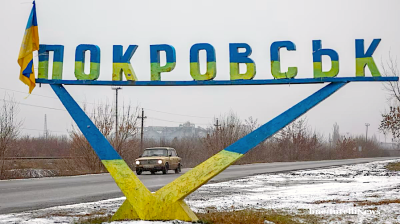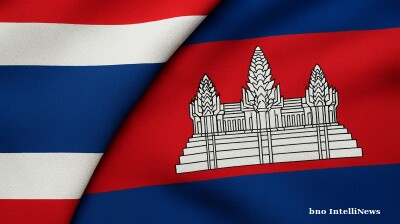Russia has decided to "drastically reduce combat operations" around the capital Kyiv and the northern city of Chernihiv, its deputy defence minister said in a breakthrough during peace talks being held in Istanbul on March 29.
The concession by Russia comes as Ukraine’s defence ministry says that Ukrainian forces have recaptured the suburb of Irpin in the north-west of Kyiv and are fully back in control of the area. Russia’s campaign in the north of Ukraine has not gone well, with its forces reportedly having taken heavy losses.
"In order to increase mutual trust and create the necessary conditions for further negotiations and achieving the ultimate goal of agreeing and signing (an) agreement, a decision was made to radically, by a large margin, reduce military activity in the Kyiv and Chernihiv directions," Russian Deputy Defence Minister Alexander Fomin said, reports Reuters.
Fomin said more details on the drawdown would be released after the Russian delegation returned to Moscow.
Kyiv also proposed a return to neutrality that was earlier conceded by Ukrainian President Volodymyr Zelenskiy, who said Ukraine would no longer pursue Nato membership in an interview with ABC News on 7 March.
"We have received the Ukrainian delegation’s proposals. As far as I understand, they agreed with Ukraine’s leadership. In brief, they are: Ukraine is proclaimed a permanently neutral state under international legal guarantees for the purpose of the implementation of its off-bloc and nuclear-free status. Further on, a list of Ukraine’s security guarantor nations is given," the Russian delegation head Vladimir Medinsky said, reports Tass.
A Ukrainian negotiator said Kyiv is also seeking international security guarantees for territory that doesn’t include the separatist-controlled areas of Donbas and Crimea. The Ukrainian delegation identified Israel and Nato members Canada, Poland and Turkey as countries that could help provide such guarantees. Russia, the United States, the UK, Germany and Italy could also provide guarantees.
"If we manage to consolidate these key provisions ... then Ukraine will be in a position to actually fix its current status as a non-bloc and non-nuclear state in the form of permanent neutrality," Ukrainian negotiator Oleksander Chaly said, Reuters reports.
"We will not host foreign military bases on our territory, as well as deploy military contingents on our territory, and we will not enter into military-political alliances," he said. Military exercises would take place with the consent of the guarantor countries.
Before the talks started, the negotiators indicated that the issue of the status of both Crimea and the Donetsk and Luhansk regions would be discussed at a possible meeting between Russian President Vladimir Putin and Zelenskiy. During the talks in Istanbul Russia said the progress could pave the way for a meeting between the presidents, without giving a timetable.
Markets reacted strongly to the news, with stocks rising and oil prices falling on optimism for peace. The ruble also firmed and remains at its strongest since the conflict started under the important RUB90 level and was trading at RUB89.02 at the time of writing, having gained almost a full ruble on the progress in the peace talks news.
The Ukraine delegation has offered a compromise in the form of a written commitment from Kyiv to abandon plans to regain Crimea and Sevastopol using military force, Medinsky said after the talks were over.
"These guarantees of security do not cover the territory of Crimea and Sevastopol, which means that Ukraine abolishes its intent to return Crimea and Sevastopol military, claiming that this would only be possible via negotiations," Medinsky said as cited by Tass. "Of course, this does not correspond to our position in any way, but Ukraine has formulated its approach."
The proposals would include a 15-year consultation period on the status of Russian-annexed Crimea, and could come into force only in the event of a complete ceasefire, the Ukrainian negotiators said.
Medinsky added that Ukraine’s proposals also do not cover "certain regions" of Donbas. The issue of Donbas has been set aside to be discussed by the Ukrainian and Russian leaders, if they should meet.
"What are those certain regions, how big is their area – Ukraine defines it separately," the Russian diplomat noted. "Russia defines it the way it understands it."
The two disputed regions are inside the larger Donbas region. Russia has recognised the Donetsk and Luhansk regions as autonomous, but what remains unclear is if this autonomous region includes all of Donbas, or a smaller territory under the immediate control of the two breakaway regions.
Going into the meeting the messages were mixed, with a senior US official saying at the weekend that Russian President Vladimir Putin is unlikely to compromise.
However, shortly before the meeting was due to start the Financial Times ran a story saying the Russian side had softened its position. Russia has dropped its demand for “denazification” of Ukraine and also has accepted Ukraine can both join the EU and do individual security deals with Nato members that contain “article 5-like language.”
Dropping denazification was mentioned before, but now the issue seems to be off the agenda completely.
The negotiators are working on a concrete text, according to reports, and there is a framework of a deal in place, but there are problems “in every section,” the head of the Ukrainian delegation told the FT.
The one part of the negotiation missing from the Istanbul talks was the status of Crimea or the Donetsk and Luhansk regions' autonomy. Ukrainian President Volodymyr Zelenskiy said earlier that he will not give up “one inch” of Ukrainian territory, but did offer to hold a referendum on the question of the status of these territories. The negotiating teams have decided to put the territory question off and let the two presidents decide that one in a face-to-face meeting.
The comments from the Russia delegation suggest that the issue of the Donbas region is not resolved. The Ukrainian proposal on Crimea amounts to an offer to “agree to disagree” over the Crimea, but offers guarantees that Kyiv will not use force to try to regain the peninsula.
Resolving the disagreements over Donbas remains a sticking point. Russia’s Donbas and Crimea demands are "not realistic," Turkish presidential spokesperson Ibrahim Kalin said in an interview with CNN on March 27.
Russia’s request to recognise the annexation of Crimea and independence of Donbas is a “very maximalist” position, Kalin said, adding that giving away territory is "off the table" and that Russia “should really come up with some other ideas.”
“These are the red lines for the Ukrainians in the Crimea and Donbas, and rightly so, because they pertain directly to Ukraine’s territorial integrity and sovereignty. We have not recognised the annexation of Crimea as, like the rest of the world, even China has not recognised the annexation of Crimea …They [the Russians] should really come up with some other ideas,” he told CNN on the sidelines of the Doha Forum.
Middle men
Turkey has been offering to mediate between Russia and Ukraine and has hosted several meetings, including a meeting between the Ukrainian and Russian Foreign Ministers on March 10.
Kalin said that Erdogan is in close contact with both the Russian and Ukrainian presidents in an effort to help bring an early end to the war. Kalin said that Erdogan is in especially close contact with Putin, with whom Erdogan has a “long-standing relationship.”
“Certainly President Putin is listening to President Erdogan and to his advice and to his ideas and suggestions. You can understand from their point of view that they don't trust most of the Nato countries, they don't want to talk to them anymore, right or wrong. But the reality is that someone has to talk to the Russian side, someone whom the Russians can also trust. Otherwise this war can go on for months, for years, and the world cannot afford another prolonged war like that, and certainly, we cannot afford another Cold War."
Turkish President Recep Tayyip Erdogan has been playing both sides of the conflict. Turkey has major commercial ties with Russia that it needs to preserve; Turkey is the favourite holiday destination for Russians, earning the country billions of dollars a year, and Russia is entirely dependent on Turkey for tomatoes. At the same time, Erdogan has been nurturing relations with Kyiv and has supplied the Ukrainian army with lethal military drones. It is one of the few countries in Europe that has maintained good relations with both sides in the conflict.
Another outsider in the meeting was Russian billionaire Roman Abramovich, who was sanctioned by the West over Moscow's invasion of Ukraine.
The two teams sat facing each other at a long table in the presidential office, with the Russian oligarch sitting in the front row of observers wearing a blue suit, a Turkish presidential video feed showed, Reuters reports.
It is not clear what role Abramovich is playing in the talks, but the oligarch is personally close to Putin and is believed by some to have participated in hand-picking him to replace Boris Yeltsin in 1999. Abramovich was a member of a clique known as the “Family” that surrounded Yeltsin in his last years in office and effectively ran the country as the president became increasingly debilitated by illness. After Putin was elected in 2000 Abramovich was appointed Governor of the Far East region of Chukotka, into which he invested heavily to improve the lives of the locals.
Abramovich has reportedly been seeking to encourage negotiations, and has travelled to Ukraine, Russia, Turkey and Israel in March. Two of his superyachts are docked at Turkish resorts.
His presence baffled at least one Ukrainian diplomat, while Moscow said he was not formally negotiating but rather there as a go-between. Zelenskiy personally met Abramovich during a recent trip to Kyiv and later asked Washington to not impose sanctions on him while the talks were ongoing.
News

Russia claims to surround Pokrovsk
Russia’s chief of the general staff Valery Gerasimov triumphantly reported to Putin that 31 Ukrainian battalions have been encircled in Pokrovsk and 18 battalions in Kupyansk, the hottest spot in the war.
.jpg)
Brazil and US to start urgent tariff negotiations after Trump-Lula meeting
Brazilian President Luiz Inácio Lula da Silva and US President Donald Trump have agreed to start immediate negotiations on tariffs and sanctions imposed by Washington, following a meeting in Malaysia that sought to ease trade tensions.

Cambodia and Thailand agree peace deal
Thailand and Cambodia have agreed a peace deal to mark the end of a conflict earlier in the year as Cambodian Prime Minister Hun Manet and Thai Prime Minister Anutin Charnvirakul attended a signing ceremony overseen by US President Donald Trump.

Trump would like to meet North Korea’s Kim Jong Un during Asia trip
The prospect of renewed diplomacy between Washington and Pyongyang has lingered since Kim’s remarks last month suggesting a willingness to speak to the outside world.



